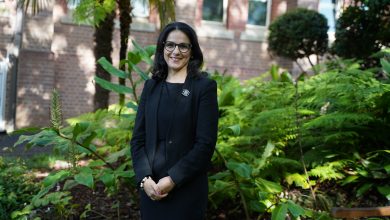Teachers skilling up through online learning

Every state and territory issues specific requirements for professional development (PD) requirements for continued registration of teachers. Amid constant discussion about ‘better teachers’ and sliding PISA results, teachers are feeling the pressure to skill up.
A concurrent discussion rages about the lack of support for teachers and the escalating workloads of school-based educators in this country. Further learning with a tertiary institution can offer mentorship and support, as well as access to all that research that is getting university professors so excited.
With plenty on offer, teachers can improve their practice, and make their job even more rewarding and satisfying as they implement new skills in areas such as special needs education, classroom management, or technical skills like presenting for student engagement, the use of Wikis for group work, or simply mastering the interactive white board (IWB).
Discussion about ‘21st century learning’ and teaching ‘digital natives’ alone raises questions of how to ensure experienced teachers are not disadvantaged by a lack of technical expertise, leading to frustration with interactive technology.
Another shift in the ‘schoolscape’ is the rise in diagnoses for students with special needs. Whatever the reason for this, the increased awareness has initiated research, and spawned training opportunities for teachers who would like to be more effective in achieving learning outcomes with these students.
How do you integrate the needs of fidgety kids in class? What is considered best practice for autism spectrum disorder? How do needs for students on different points on the spectrum differ? Plenty can be learnt on the job through contact with students who present with special needs, yet mapping this data to solid research concepts adds another dimension. This mix of practical and theoretical learning serves to cement new concepts, and add them permanently to your tool-kit.
With a school schedule that spills over into evenings and weekends, and few hours allocated for PD, the challenge is both how and when?
For many teachers, the answer is online learning with all its benefits, but also challenges. Dr Derek Alexander Muller is a respected educational physicist; he researches the science (physics specifically) of learning. His view is that no matter what technology is tipped to replace teachers, it doesn’t. The wireless was supposed to beam experts into classrooms, but students learn better if the person is in the room. Video was supposed to replace textbooks, but both serve curriculum requirements side by side.
He says the role of teachers has stayed the same regardless of the technology used:
“The fundamental role of a teacher is not to deliver information. It is to guide the social process of learning. The job of a teacher is to inspire, to challenge, and to excite their students to want to learn.”
Just as video has been harnessed to serve the school teacher, technology has been harnessed to serve the lecturer, and with results that support vibrant and nurturing online learning communities. Universities offering online education recognise the need for interpersonal contact, and the benefits collaborative learning can offer.
Often courses will consist of both online learning and intensive face-to-face periods, where practical skills can be demonstrated, practised and assessed. These intensives also provide opportunity for students to share ideas, observations and anecdotes from their own teaching practice. Universities will host forums and discussion boards, acting as ‘tutorials’. These online sessions allow students to request guidance from tutors and lecturers, and engage in tutorial style discussions that encourage critical thinking, enhancing intellectual engagement.
With strong awareness of the benefits of interactive learning, universities will create ways to unite the dispersed course group. Innovative strategies such as optional weekend sessions can provide added networking opportunities and face-to-face support from lecturers and peers, outside of your online or classroom setting.
These ‘residentials’ or ‘intensives’ facilitate expansion of your multidisciplinary network and allow you to meet like-minded students.
Topics may include new content, or a review of course materials. Some sessions may involve expert speakers and discussion panels. They can provide industry insights and networking opportunities.
Before embarking on an online course, ensure you have the time to complete the recommended hours, both online contact hours and self-study requirements. You will need to be able to work independently, and your equipment should be reliable. A computer dying on you while you are completing an online exam could jeopardise your results.
Online education can be a rewarding exercise in independent achievement, with more than the course content on offer. Tapping into an online learning community gives you access to likeminded teaching professionals well beyond the confines of your own school’s staffroom.
Online learning with a university provider offers a well-resourced and reliable professional development opportunity. While you can expect to be supported by academic staff with feedback, academic counselling and engaging instruction, self-motivation is key to your success.







